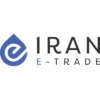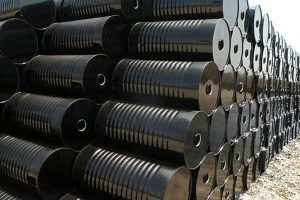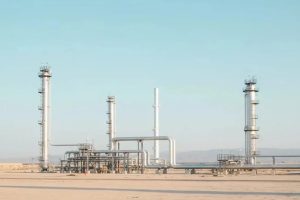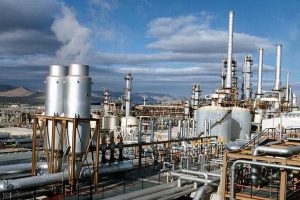What Are Petrochemical Products: Introduction + Uses
Petrochemical products include a wide range of chemicals such as methane, methanol, ethylene, propylene, benzene, toluene, butadiene, and many others. And each serves as a raw material in various industries and is an essential part of modern life. But what exactly are petroleum-derived products? They are substances that are produced through the process of converting crude oil or natural gas into basic chemical products. Then, they are eventually transformed into goods such as plastics, synthetic fibres, paints, detergents, and fertilisers. In this article from the Iran ETrade blog, a specialised source for petroleum product announcements, we will define petrochemicals and explore their types and applications.
An Introduction to the Petrochemical Industry
Petrochemicals originate from crude oil, natural gas, or gas liquids. Therefore, they are one of the main pillars of Iran’s economy, serving numerous industrial and household applications. Various types of bitumen, solvents, petroleum coke, cosmetics and personal care products, olefins, Teflon, and chemical fertilisers are made of the petroleum-derived products.
The petrochemical industry, as one of the most important branches of the chemical sector, produces organic and inorganic compounds using oil and gas feedstocks. Therefore, the petrochemical products industry links energy resources with processing industries and plays a key role in driving economic growth.
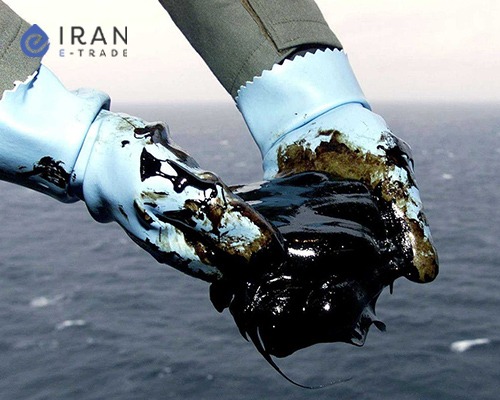
Classifying Petrochemical Industries
Petrochemical industries are divided into five main sections: upstream units, basic units, intermediate units, final units, and downstream units, each playing a different role in the production process.
- Upstream Units: In these units, the linear hydrocarbons in oil and gas separate from other hydrocarbons and are then sent to the basic petrochemical units for further use.
- Basic Units: These units in chemical complexes convert raw materials into base chemicals such as ethylene and propylene and then send them to the intermediate units.
- Intermediate Units. In these units, workers prepare the feedstock needed for the final units.
- Final Units: These units are at the end of the production chain, where the final petroleum-derived products are manufactured.
- Downstream Units: These include processes that transform final products into consumer goods such as plastics, synthetic fibres, and more.
Feedstocks for Petrochemical Products
The main feedstocks for petrochemical industries include light and heavy naphtha, natural gas, liquefied gas, ethane, propane, and butane. Although, depending on the type of feedstock and the technology used, different products are produced.
Types of Petrochemical Products
Petrochemical products fall into three main categories based on their production stages. Therefore, we will explain basic, intermediate, and final petroleum-derived products in this section.
1. Basic Products
Basic petroleum-derived products are produced from naphtha, natural gas, or gas liquids. Olefins are one group of basic petrochemicals and include ethylene, propylene, and butadiene. The second group consists of aromatics, which are also basic petrochemicals and include substances such as benzene, toluene, and xylenes.
2. Intermediate Products
As their name suggests, intermediate products such as polyethylene , polystyrene, and vinyl chloride monomer are produced from basic products and are used in the manufacturing of final petroleum-derived products.
3. Final Products
Chemical fertilisers, detergents and personal care products, synthetic fibres such as nylon, industrial solvents, and rubber are some of the final petrochemical products that have uses in industries and our daily lives.
The Most Important Petrochemical Products
Butane, benzene, propylene, toluene, resins, medical plastics, automotive parts, food preservatives, and carpets and rugs are some of the petrochemicals.
Among hundreds of petrochemical products, some compounds have great importance due to their wide applications and significant role in the production chain. Below, we introduce the most important petrochemicals:
1. Methane
Methane is one of the simplest and widely used hydrocarbons, serving as a fuel and as the main feedstock for producing ammonia and hydrogen in petrochemical units.
2. Methanol
Methanol is a petrochemical product that serves as a raw material for producing thermal insulators, resins, formaldehyde, antifreeze, and alternative fuels.
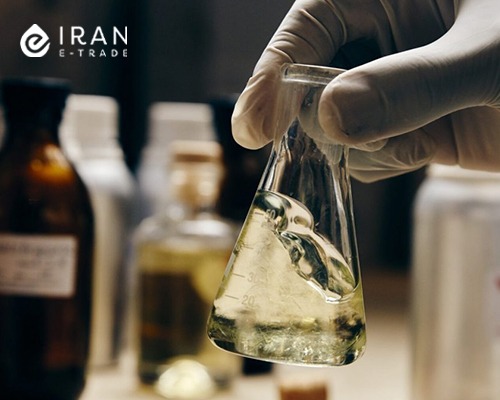
3. Ethylene: One of the Most Important Petrochemical Products
Ethylene is one of the most used petrochemical products that has widespread application in the production of polyethylene, various plastics, detergents, synthetic fibres, and different types of resins.
4. Butane
Butane is a light, compressible gas that is used both as a household and industrial fuel and in the production of isobutene, butadiene, and other downstream compounds.
5. Petrochemical Product: Benzene
Benzene is another petrochemical product that serves as a raw material for producing pharmaceuticals, nylon, electronic devices, paints, and synthetic rubber.
6. Propylene
This petrochemical product is a type of gas used in the production of a versatile plastic polymer called polypropylene.
7. Toluene
Toluene is another petrochemical product that is a widely used solvent in the paint and resin industries and also plays a role in the production of inks and sports equipment.
8. Butadiene
Butadiene is a key component in the production of synthetic rubbers, especially for car tires, adhesives, and industrial flooring.
9. BTX (Benzene, Toluene, Xylene)
The term BTX stands for benzene, toluene, and xylene, all of which are important aromatic compounds widely used in the production of synthetic fibres, detergents, paints, and solvents.
Applications of Petrochemical Products
Due to their diversity and specific technical properties, petrochemicals have applications across a wide range of industries. In addition to the following, various solvents are among petrochemical products, and different processed oils also count as petroleum-derived products.
1. Medical Equipment
The medical resins are petroleum-derived products used in drug purification and production, which help accelerate the manufacturing process. Medical plastics, which are also petrochemicals, are used in making prosthetics and medical equipment such as disposable syringes and laboratory bottles.
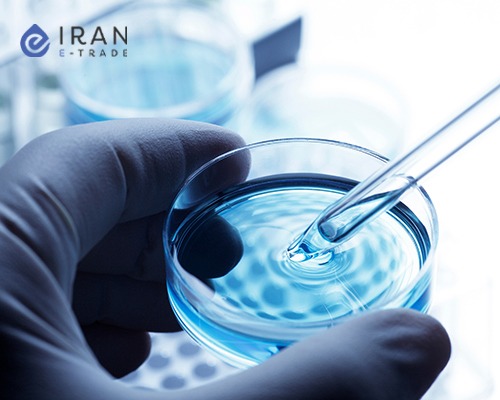
2. Food Industry
Food preservatives are petrochemicals that play a crucial role in maintaining quality and extending the shelf life of food. Some compounds, such as food colourings, are also types of petrochemical derivatives.
3. Chemical and Agricultural Fertilisers
Many pesticides and chemical fertilisers are produced from petrochemical products. Chemical fertilisers, such as urea and ammonia, play a vital role in enhancing agricultural productivity.
4. Household Products
Plastic containers, teflon, detergents, carpets, and rugs are petroleum-derived products with wide usage in homes and daily life.
Furthermore, safety glass, another petrochemical product, is applied in residential and commercial buildings. Additionally, crayons and markers are common petrochemicas used at home and in the workplace.
5. Disposable Tablecloth
One of the most common uses of petroleum-derived products is disposable tablecloths, which are mainly made from polyethylene and polypropylene, both of which are petroleum derivatives.
6. Detergents and Personal Care Products
Many basic compounds used in making soap, shampoo, laundry detergent, and dishwashing liquid are derived from petrochemicals. Also, surfactants, solvents, aromatic fragrances, and some antibacterial additives are all considered petrochemical products.
7. Petrochemical Products in the Cosmetics and Personal Care Industry
Cosmetics and personal care products are petrochemicals made from compounds such as light polymers, mineral oils, and aromatic compounds.
8. Automotive Industry
Internal and external car parts, including dashboards, bumpers, insulation, seat covers, safety glass, tires, and even lubricating oils, are all produced from petrochemicals.
Top Petrochemical Exports
Ethylene, methanol, propylene, polyethylene, urea, bitumen, ammonia, petroleum coke, and industrial solvents make up the largest share of petrochemical exports, which are mainly shipped to China, India, Turkey, and Europe.
Imports and Exports of Petrochemical Products
Countries with oil and gas resources, such as Iran, have a comparative advantage in exporting petrochemical products. At the same time, certain specific raw materials, equipment, or additives that are not produced domestically are supplied through imports.
Exporting these products plays a key role in generating foreign currency and boosting the country’s economic growth.
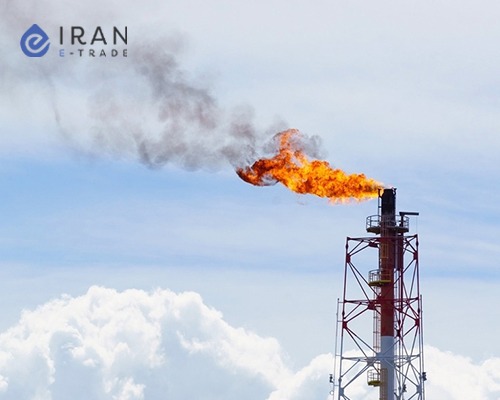
Imports of Petrochemical Materials
The main imports of petrochemicals include specific chemical additives, catalysts, and complex compounds used in the production of value-added products.
Exports of Petrochemical Materials
Iran’s list of exported petroleum-derived products includes methanol, urea, polyethylene, polypropylene, ammonia, industrial solvents, and processed oils. Among these products, bitumen, a widely used petrochemical product, and petroleum coke, a valuable petrochemical product, are also among the exported items.
The Role of the Petrochemical Industry in the Economy
The petrochemical industry is one of the key economic driving sectors. Therefore, it plays a crucial role in job creation, increasing non-oil exports, supplying raw materials for downstream industries, and developing industrial regions.
Advantages of Petrochemical Products
The petrochemical sector plays a very important role in supplying raw materials, advancing technology, creating jobs, and generating foreign exchange revenue.
The Impact of the Petrochemical Industry on the Environment
The petrochemical industry carries environmental risks, including plastic waste generation and greenhouse gas emissions. Therefore, solutions such as recycling, using renewable energy, and developing green technologies are being implemented to reduce the negative environmental effects of petrochemical products.
Frequently Asked Questions About Petrochemical Products
In this article from Iran ETrade blog, we introduced petrochemicals and their applications. Therefore, we will conclude this article by answering a few important questions about petroleum-derived products.
List of Iran’s Petrochemical Products
Iran’s petroleum-derived products include basic (ethylene, methanol, benzene), intermediate (styrene, vinyl chloride), and final products (polyethylene, chemical fertilisers, resins, and bitumen).
What Are the Most Important Petrochemical Products?
Ethylene, propylene, methanol, benzene, polyethylene, and chemical fertilisers are among the most important petrochemicals.
How Are Petrochemical Products Produced?
The production of petrochemical products begins with naphtha or natural gas feedstock. Then, through various stages such as thermal cracking, refining, chemical reactions, and polymerisation, they are transformed into final products.
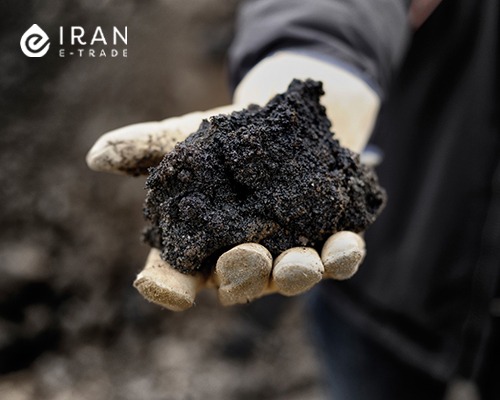
Sources: cpvmfg, chandra-asri
Bitumen Price
- Bitumen Suitable for Hot Climates: Benefits + Key Technical Tips
- How to Use Nano Bitumen: Properties & Applications + Method...
- Petroleum Products and Petroleum Derivatives: Introduction + Uses
- Oil Refineries in Iran: Complete List + Comparison
- Gasoline Producing Refineries in Iran: 12 Major Refineries
- Largest Oil Producers in the World: The Top 13 Countries...
